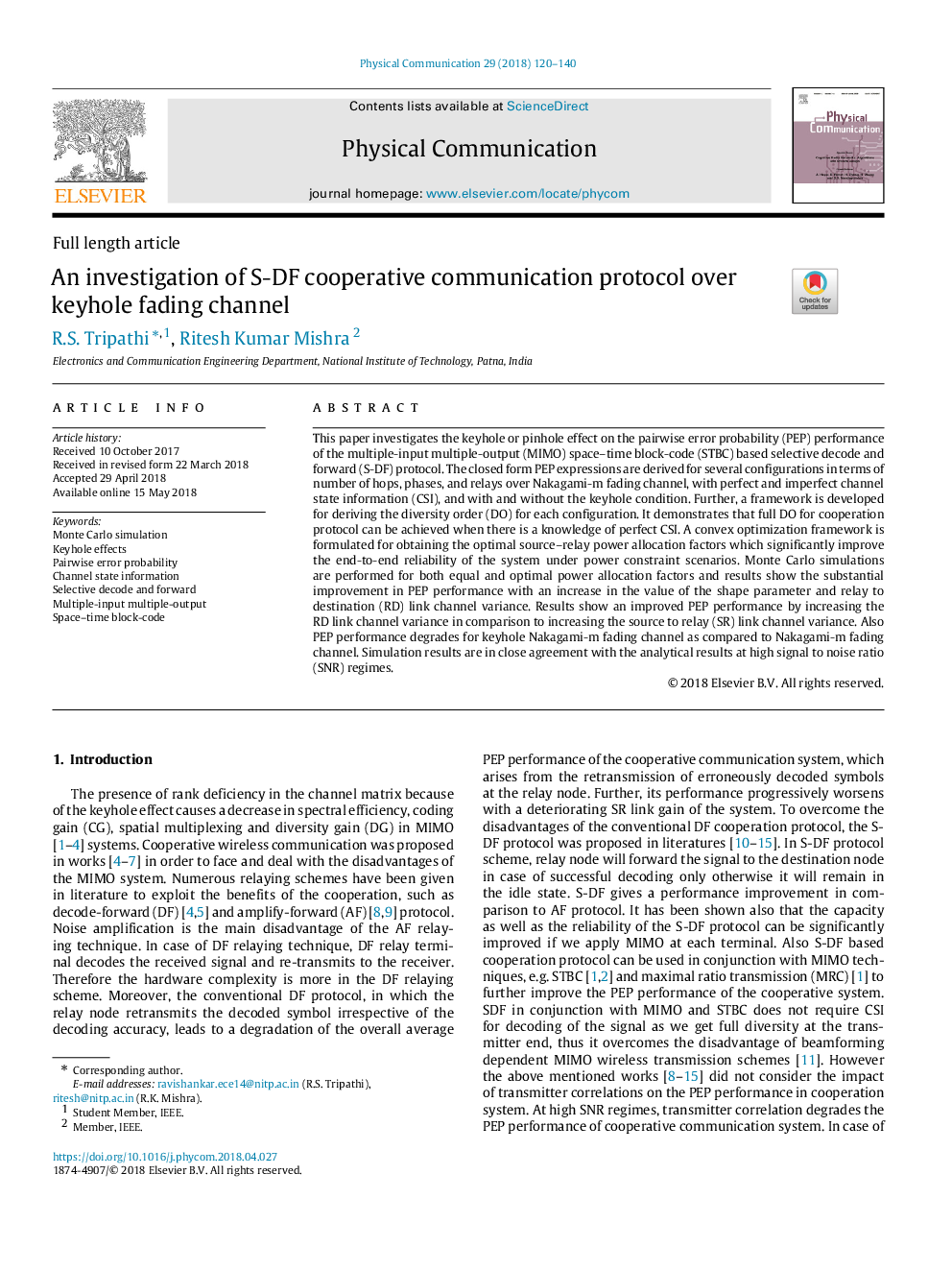| Article ID | Journal | Published Year | Pages | File Type |
|---|---|---|---|---|
| 6888959 | Physical Communication | 2018 | 21 Pages |
Abstract
This paper investigates the keyhole or pinhole effect on the pairwise error probability (PEP) performance of the multiple-input multiple-output (MIMO) space-time block-code (STBC) based selective decode and forward (S-DF) protocol. The closed form PEP expressions are derived for several configurations in terms of number of hops, phases, and relays over Nakagami-m fading channel, with perfect and imperfect channel state information (CSI), and with and without the keyhole condition. Further, a framework is developed for deriving the diversity order (DO) for each configuration. It demonstrates that full DO for cooperation protocol can be achieved when there is a knowledge of perfect CSI. A convex optimization framework is formulated for obtaining the optimal source-relay power allocation factors which significantly improve the end-to-end reliability of the system under power constraint scenarios. Monte Carlo simulations are performed for both equal and optimal power allocation factors and results show the substantial improvement in PEP performance with an increase in the value of the shape parameter and relay to destination (RD) link channel variance. Results show an improved PEP performance by increasing the RD link channel variance in comparison to increasing the source to relay (SR) link channel variance. Also PEP performance degrades for keyhole Nakagami-m fading channel as compared to Nakagami-m fading channel. Simulation results are in close agreement with the analytical results at high signal to noise ratio (SNR) regimes.
Related Topics
Physical Sciences and Engineering
Computer Science
Computer Networks and Communications
Authors
Ravi Shankar, Ritesh Kumar Mishra,
